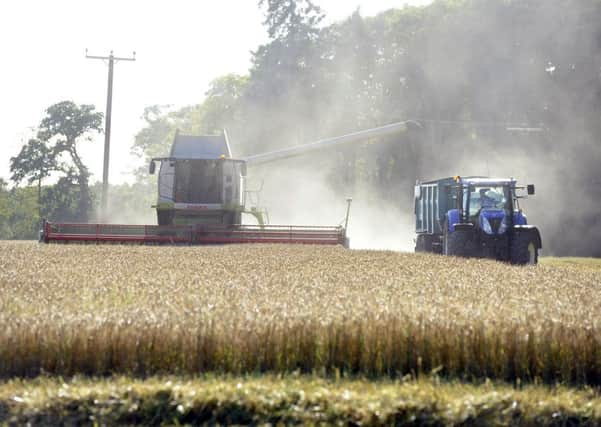Politicians urged to use Brexit to boost farmers


The Beyond 2020: New farm policy was drawn up by Sustain, an alliance of 94 organisations ranging from the Family Farmers’ Association to the RSPB which has a combined membership of millions.
• READ MORE: Farming news
The group wants the next government to retain taxpayer support for farmers after Brexit – but wants to see the current two-pillar common agriculture policy (CAP) approach replaced with a new four-part deal for farming based on payments for public goods, capital grants, free advice and wider policy measures to ensure farmers can thrive.
Advertisement
Hide AdAdvertisement
Hide AdThe group also believes that there should be no “top-down” UK policy – and that agriculture should continue to be fully devolved when the UK leaves the EU. It proposes that the nations “could and should” agree a consensual framework which maintains UK-wide structures where needed.
Vicki Hird, farming campaign co-ordinator with the alliance said: “Our proposals recognise that farming provides wider public benefits including thriving rural communities, valued farm workers, good nutrition, a protected and nurtured environment and wildlife, and high animal welfare.
“The next government has a once-in-a-lifetime opportunity with Brexit to end some of the absurdities of CAP, which has not supported small and family farms well and which contributed to a loss of farmland diversity and wildlife.”
• READ MORE: Rural industry leaders examine post-Brexit landscape
Meanwhile, a spat arose yesterday between political parties in Scotland, with the SNP’s rural economy secretary Fergus Ewing being accused of testing the boundaries of the rules on purdah.
In a Scottish Government press release, Ewing used the long-standing uplift convergence issue to claim that Scottish hill farmers were being denied an average of £14,000 over a six-year period.
Additional EU funding granted to the UK back in 2014 arose because of low area payments in Scotland – however the UK government decided to spread the additional funds across the whole of the UK.
Advertisement
Hide AdAdvertisement
Hide AdEwing said that the £190 million over six years should all have been returned to Scotland, rather than the £30m allocated by UK government – and pointed out that the promised review of the situation had not yet been completed.
“Despite repeated requests, there is no evidence the UK government are taking action to deliver a fair share of the additional convergence funding to Scotland,” he said.
However, the Scottish Conservatives’ rural affairs spokesman, Peter Chapman, said that his party had made a clear commitment to support farmers.
Chapman added that, on a day when the SNP had been accused of potentially breaching purdah rules, this appeared to be “yet another highly political press release issued under the guise of the Scottish Government” during an election period.